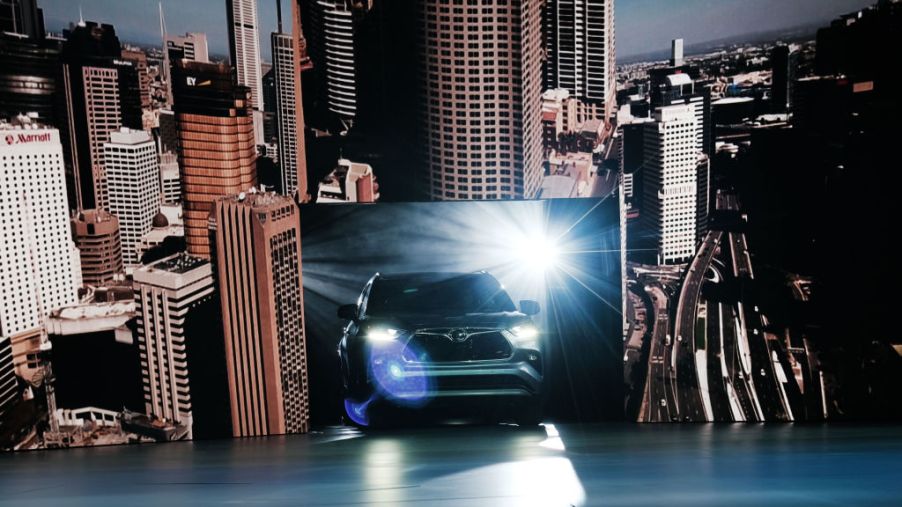
The Most Common Toyota Highlander Problems You Should Know About
As the best-selling midsize SUV in America, the Toyota Highlander has received heaps of praise. It has been rated at the top of its class for reliability, safety, and affordability, and displays consistently high owner satisfaction ratings. With this much good news, it is hard to imagine that the Toyota Highlander could have any issues. However, even though the overall reception of the Highlander is consistently positive, there are a few problems to watch out for, especially in older models.
Stripped engine bolts

According to Car Complaints, the majority of customer issues stemmed from engine problems which often resulted in complete engine failure. Although engine failure could be attributed to a variety of issues, the majority stemmed from stripped engine bolt threads, particularly in the 2003 model.
There are 30 documented complaints on the site, with an average documented vehicle mileage of 123,000 miles. Some mechanics were able to order a repair kit to replace the bolts, but several required a full engine replacement. The average cost of repairs for this issue is $3,200.
The Toyota Highlander also has suffered from ruptured oil lines
Unfortunately, the Highlander’s engine troubles didn’t end there. The next greatest area of concern is engine failure due largely to a ruptured oil line. According to RepairPal, this problem is known by Toyota, and a replacement part was issued, but the new part has been known to exhibit the same problem. This issue has arisen across all engine sizes for model years 2005 through 2013, and it can result in catastrophic failure if not caught in a timely manner.
Reports indicate that if the engine has suffered a complete failure due to lack of oil, it can often be fixed by replacing the oil line and cleaning the affected areas. It is important, however, that the owner have their vehicle checked out immediately. Drivers who continue driving for even a short time after the engine light activates often required a full engine replacement. On average, the oil line rupture presents at around 81,000 miles, and the cost of repairs averages at $4,400.
Other Toyota Highlander problems
Highlander owners may find the check engine light illuminated for a much less serious reason. If the light comes on after the latest tune-up, the problem may be with a hose on the air filter. Some air hoses are insufficiently attached to the housing, which allows them to come loose during standard maintenance. Luckily, this is an easy fix, with an average cost of $88 – $111.
A second sensor issue has been discovered in relation to the Highlander’s center airbag. According to RepairPal, there have been 67 reports of the airbag light activating due to a malfunctioning center airbag sensor. Fortunately, the airbag itself is functional, and the error is easily fixed by replacing the sensor at an average price of $88 – $111.
Should you buy an older Toyota Highlander?
Overall, Toyota has an excellent record for improving its vehicles as issues arise, and the Highlander is no exception. Toyota took the problems seriously, and engine problems with models after 2013 are few and far between. In fact, the overall number of consumer complaints significantly decreased except in 2015 when there was a flurry of complaints about the comfort of the vehicle’s seats.
Customers considering a Toyota Highlander older than 2013 would be wise to have a trusted mechanic perform a detailed check-up with special attention to the engine bolts and oil lines. In spite of the severity of the engine problems, the number of complaints is dwarfed by its high owner satisfaction scores, so it is fair to say that even an older Highlander can be a reliable investment.


